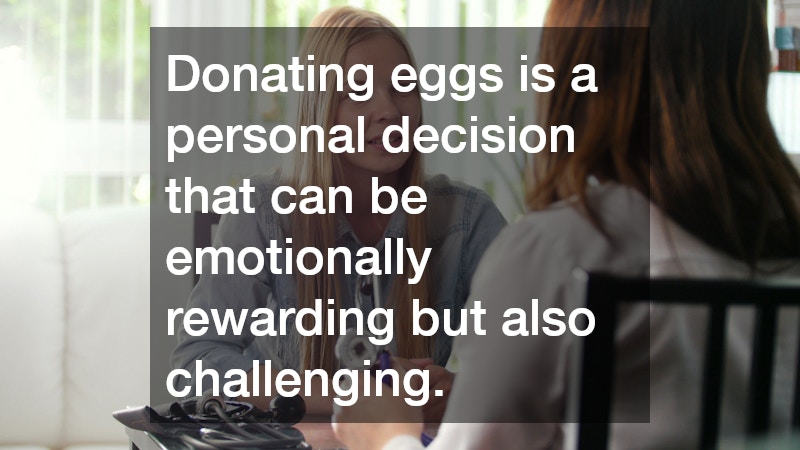Egg donation is a process where a woman donates her eggs for assisted reproduction or biomedical research. Potential donors should know that egg donation is different from selling eggs, even though compensation is often provided to cover related expenses. The concept of selling eggs can sometimes mislead individuals into thinking it’s a simple transaction, but it’s a process filled with emotional and physical considerations.
Before proceeding with egg donation, it is crucial for donors to understand the entire procedure. The process generally involves hormonal treatments to stimulate the ovaries, which can impact the donor’s health.
These treatments require consistent medical monitoring and a series of doctor’s appointments over several weeks.
Moreover, women considering egg donation should be mindful of the ethical and legal aspects. Understanding the anonymity issues and potential long-term implications on family dynamics is vital. Federal and state regulations also vary, making it essential to be informed about the laws applicable in the region where you plan to donate.
The Physical and Emotional Considerations
Donating eggs is a personal decision that can be emotionally rewarding but also challenging. It begins with the screening process, which can be an emotionally intensive period involving thorough medical and psychological evaluations. Many women encounter unexpected emotional responses as they learn about their reproductive health and fertility capacity.
The physical process involves hormonal treatment, which can result in side effects such as mood swings, bloating, and abdominal discomfort. These side effects mimic some aspects of premenstrual syndrome but may be more intense and prolonged. For this reason, donors should ensure they have a strong support system, including healthcare professionals who can provide advice and emotional reassurance throughout the period.
Most significantly, prospective donors should reflect on the personal and philosophical aspects of donating eggs. It can be profoundly fulfilling to help others achieve their dreams of having children. However, potential donors should consider long-term psychological effects, such as potential feelings about any resulting children and future inquiries regarding genetic background.
Legal and Financial Aspects
Understanding the financial aspect of egg donation is critical. While it might seem similar to selling eggs, the compensation offered is not for the eggs themselves but for the time, effort, and potential risk donors undertake. It’s necessary to know how compensation is regulated and what costs it intends to cover during the donation process.
Legal considerations are equally important when deciding to donate eggs. It’s essential to sign a legal agreement that outlines the rights and responsibilities of both the donor and the agency involved. This legal document should address issues such as confidentiality, the use of the eggs, and whether donors have any rights or responsibilities towards any children born from the donation.
Donors need to be aware of the implications of their decision from a legal perspective. This includes understanding their rights regarding anonymity, as some regions have moved toward offering donor-conceived children more information about their biological origins. Consulting with a lawyer experienced in reproductive law can offer clarity and ensure that donors are making informed decisions.
Ultimately, deciding to donate eggs is a deeply personal choice that should be made with full knowledge of the physical, emotional, legal, and financial aspects. Speaking with past donors, counselors, and medical professionals can provide insight and support during the decision-making process. Making an informed decision also involves considering the potential life-changing outcomes for recipients and donors alike.
It is recommended to thoroughly research and select clinics and agencies with strong reputations and comprehensive support systems in place. The commitment to donate requires mental preparation and a clear understanding of one’s motives. Taking time to reflect on personal values and how this decision aligns with them can help ensure that the choice to donate is both fulfilling and rewarding.
In the end, being fully prepared and informed can make the egg donation process a positive experience for all parties involved. The keyword “selling eggs” is often used incorrectly when discussing compensation for egg donation, and understanding this distinction is crucial. By knowing the facts, engaging in self-reflection, and seeking professional guidance, donors can contribute to a meaningful cause with confidence and peace of mind.




